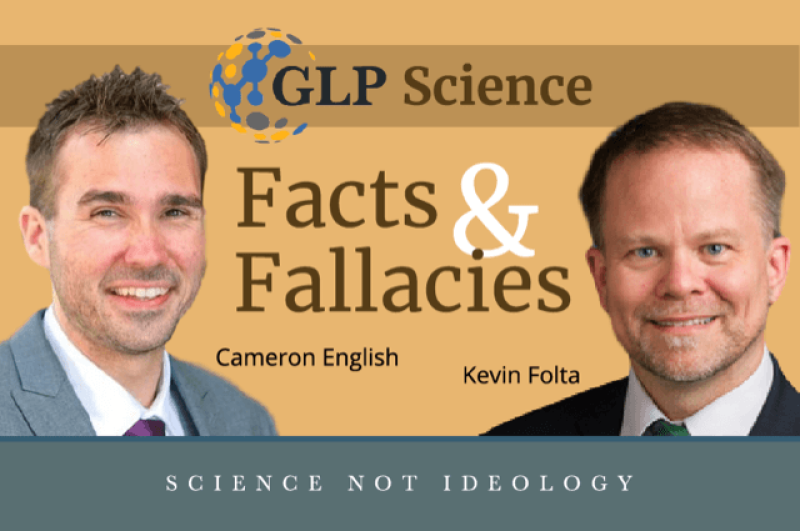Podcast:
Podcast: Play in new window | Download
Subscribe: RSS
Video:
Join geneticist Kevin Folta and GLP contributor Cameron English on episode 206 of Science Facts and Fallacies as they break down these latest news stories:
Instead of harvesting thousands of petals from hundreds of plants to manufacture perfume, scientists can use the tools of synthetic biology to engineer microbes that produce identical fragrance ingredients much more sustainably. Applied beyond perfume to food ingredients, flavorings and medicines, these techniques are poised to yield an array of economic and environmental benefits. But this raises an important question: could consumer perceptions delay the progress of synthetic biology in the same way they slowed progress in crop biotechnology?
There is a clear consensus surrounding organic farming. Although there is nothing wrong with this form of agriculture, it simply cannot produce enough to meet the global demand for food today or in the future. Why, then, do so many economic and political elites continue to push governments around the world to mandate organic farming practices? It would seem that ideology trumps evidence more often than we’d like to admit.
A recent study captured popular attention for positing a link between commonly used sleeping medications and dementia. Some news stories helpfully explained the paper’s limitations, though most press coverage simply repeated the study’s conclusion without providing the necessary context. For now, there is little evidence indicating that a properly used sleeping medication contributes to dementia.
Listen to the podcast here: https://tinyurl.com/33kj5wvh
Kevin M. Folta is a professor, keynote speaker and podcast host. Follow Professor Folta on Twitter @kevinfolta
Cameron J. English is the director of bio-sciences at the American Council on Science and Health. Visit his website and follow ACSH on Twitter @ACSHorg































